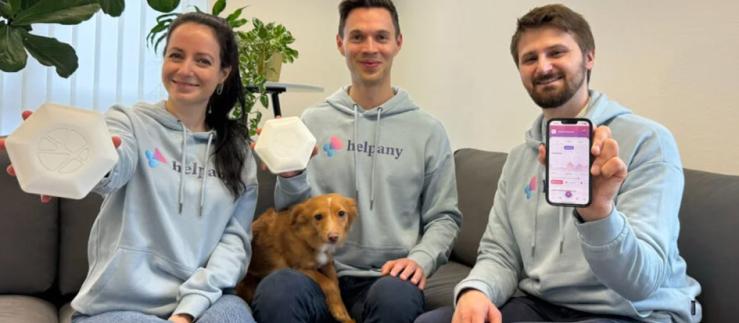Marco Zaffalon is Professor and Scientific Director at the Dalle Molle Institute for Artificial Intelligence (IDSIA USI-SUPSI) in Lugano, Switzerland. He leads a research group made of 30 full-time researchers on probabilistic machine learning. Prof. Zaffalon has published 150 research papers and has co-founded Artificialy, an innovative AI solutions company based in Lugano. In the interview with us, he talks about Switzerland’s strengths in the field of Artificial Intelligence (AI).
IDSIA is known worldwide for its AI research. What different tech applications and innovations has IDSIA brought to the world?
IDSIA is very well known for its research on optimization algorithms – for example in routing, supply chains and scheduling – inspired by the behavior of ants: so-called ant-colony optimization. This research eventually also inspired swarm robotics, where very simple robots create complex swarm behavior through indirect communication between them, in the way ants do. Technically this process is called stigmergy.
Other than this, we have a very long history of applied projects developed with companies and numerous special innovations have been developed while working on these projects.
A fashionable topic at the moment is LSTM (long short-term memory), a type of neural network invented in 1997 in a joint collaboration between IDSIA and the Technical University of Munich. This is probably the most used type of neural network today in the world, with all the big players using it, such as Apple, Google, Amazon, etc.
What are the most important recent trends in AI and where do you see growth potential for AI applications?
Natural language processing has been growing a lot recently on the back of the incredible progress achieved using deep learning. I am talking for instance of OpenAI's GPT-3. We see numerous requests to work in this field, especially by companies in the banking and insurance sector, and in general where texts and regulations abound.
There is also increasing use of AI in Industry 4.0 and the internet of things, which is growing rapidly in manufacturing industries.
More generally speaking, I think all industrial sectors and companies should be growing dramatically at this time because of AI. If that is not happening, there is a problem and we ought to understand better where that problem lies to remove possible roadblocks. In other words, my point is that AI is already ready to help and make businesses grow. It is our fault if we haven't seized the opportunity yet.
I think all industrial sectors and companies should be growing dramatically at this time because of AI.
Know-how and technology transfer are an important part of your work. That sounds very attractive to companies. How do you collaborate with Swiss and international corporations?
Yes, know-how does excite companies. We usually collaborate with them through Innosuisse, the Swiss innovation agency, which funds joint work between research centers and private companies. This offers a great opportunity for companies, especially for those that cannot afford to invest in innovation through applied research. These projects last typically for a year and a half and can greatly help companies to innovate.
But there are also many companies that prefer to give us a direct mandate, to speed up the work, for example. One way or the other we typically always have about 20 applied projects in progress. UBS, Mastercard, Novartis, Roche, Georg Fischer and Bystronic are among the companies with which we have worked or are working.
Switzerland’s success as a business location has a lot to do with strong R&D capabilities and activities – in universities, research institutes and corporates. How would you evaluate Switzerland’s current position as a R&D knowledge hub compared to other countries?
I can give you many objective reasons why Switzerland is very well positioned:
- First and foremost, the government's annual investment in R&D as a percentage of GDP tops the world ranking;
- the quality of its polytechnics and the myriad high-profile research centres distributed all over the country;
- the big private sector players, such as Roche, Novartis, UBS and ABB, invest massively in research – so that Switzerland's number of patent applications per inhabitant also tops the world ranking;
- Switzerland's dense fabric of small and medium-sized enterprises that are best in class in their fields;
- Switzerland's two-track education system, one more academic, the other more applied, which is regularly praised worldwide as an example of a good education system.
But most of all, for me, Switzerland owes its success to its liberal and pragmatic mentality. Bureaucracy is kept to a minimum, the state trusts its citizens, innovation is welcome and favored, no matter where it originates. I, for example, came here from Italy as a fresh PhD graduate, knowing nobody. And still I was given the freedom to do my research and to receive a lot of funding. I have been able to form a large group of researchers and eventually become scientific director of IDSIA as well as a professor.
Bureaucracy is kept to a minimum, the state trusts its citizens, innovation is welcome and favored, no matter where it originates.
Can Switzerland be an R&D hub for AI?
There is a big opportunity. But the AI train is moving fast and is easy to miss, despite our past successes. We must start running now to catch it. The answer is not just to appoint new AI professors in a polytechnic. It is much more than that. The country’s system must embrace change overall. You might ask why I am saying all this about AI and not some other field of innovation. The answer is that AI, unlike other innovation sectors, will pervade every other field. Global AI business revenues in the current decade are estimated at around 13 trillion US dollars. We are talking about our future wealth and well-being.
About IDSIA
The Dalle Molle Institute for Artificial Intelligence (IDSIA), based in Lugano, Canton of Ticino, was founded in 1988. It has gained international recognition for the invention and development of long short-term memory (LSTM) in the 1990s, an algorithm that is now used by Google, Facebook, and Apple for speech recognition. IDSIA is also where the key scientists and technologies of DeepMind emanate from, an AI company acquired by Google for 500 million US dollars just four years after its formation. www.idsia.ch







